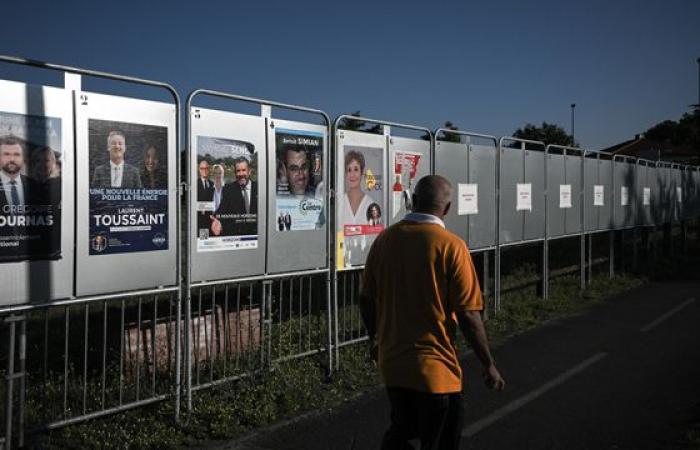France’s partners are concerned about the political situation in the country, but not all. On June 26, the French president received a visitor who is not at all unhappy with the rise of the French far right: Viktor Orbán, Prime Minister of Hungary. On July 1, Hungary will assume the presidency of the Union, so Orbán is touring the capitals to prepare for the event.
His arrival in France comes three days before the first round of legislative elections, which could allow him to strengthen his political project. Orbán, a self-declared Eurosceptic, has theorized the transformation of the European Union from within and dreams of a far-right alliance that can change the cards on the table, stop what he sees as a march towards federalism and cancel support for Ukraine.
In September Marine Le Pen was in Budapest to meet the Hungarian Prime Minister. Two years earlier it had been the turn of Éric Zemmour, head of the other French far-right party, Reconquête, to visit Hungary to express his “admiration” for the country’s government.
The fact remains that France’s main partners are very alarmed by a vote that appears rather risky. The first among them is certainly German Chancellor Olaf Scholz, who after the dissolution of the French parliament maintained a prudent silence but who nevertheless expressed his “concern”. The Social Democratic leader has publicly expressed the hope that “other parties than Marine Le Pen’s will win”.
Berlin considers the Rassemblement national “deeply Germanophobic”. Le Monde reported on June 26 that German leaders fear that a far-right victory in France could drag relations between the two countries “into the worst crisis since the Second World War.” This is no small statement.
The polarization of the French vote is also worrying the Germans, because Jean-Luc Mélenchon is certainly no longer soft on Germany. In 2015 the leader of the left-wing party La France insoumise (LFI) signed a book entitled Bismarck’s herring and subtitled The German Poisonin which he calls for a “frank confrontation” with Germany. But German politicians and commentators do not equate the RN with LFI. In their opinion, clearly, the real danger comes from the far right.
Most of the leaders that Macron will meet in Brussels these days have a catastrophic scenario in mind: a France paralyzed, if not downright hostile, in the face of the European project and a French eclipse at a time when Europe faces very complicated challenges on the economic, technological and geopolitical level, with Putin on one side and the possible victory of Donald Trump on the other.
In theory, the 27 should approve the candidacies of the three main leaders of the Union: Ursula von der Leyen reconfirmed as head of the Commission, the Portuguese Pedro Costa as Prime Minister and the Estonian Prime Minister Kaja Kallas as head of community diplomacy. A conservative, a social democrat and a liberal, therefore, with the same balance as the previous European government, despite the defeat of Macron’s party in France and despite the weight of Giorgia Meloni’s Italy.
This apparent continuity hides the great fear of an evolution in France that could break the balance, plunging one of the engines of the Union into chaos. Europe is not at the center of the debates of the French electoral campaign, but the consequences of the vote for the old continent will be considerable.
(Translation by Andrea Sparacino)






